BA Working with Children, Young People and Families
Undergraduate
- Start date
- –
- Study mode
- –
- Course length
- –
- UCAS Code
- –
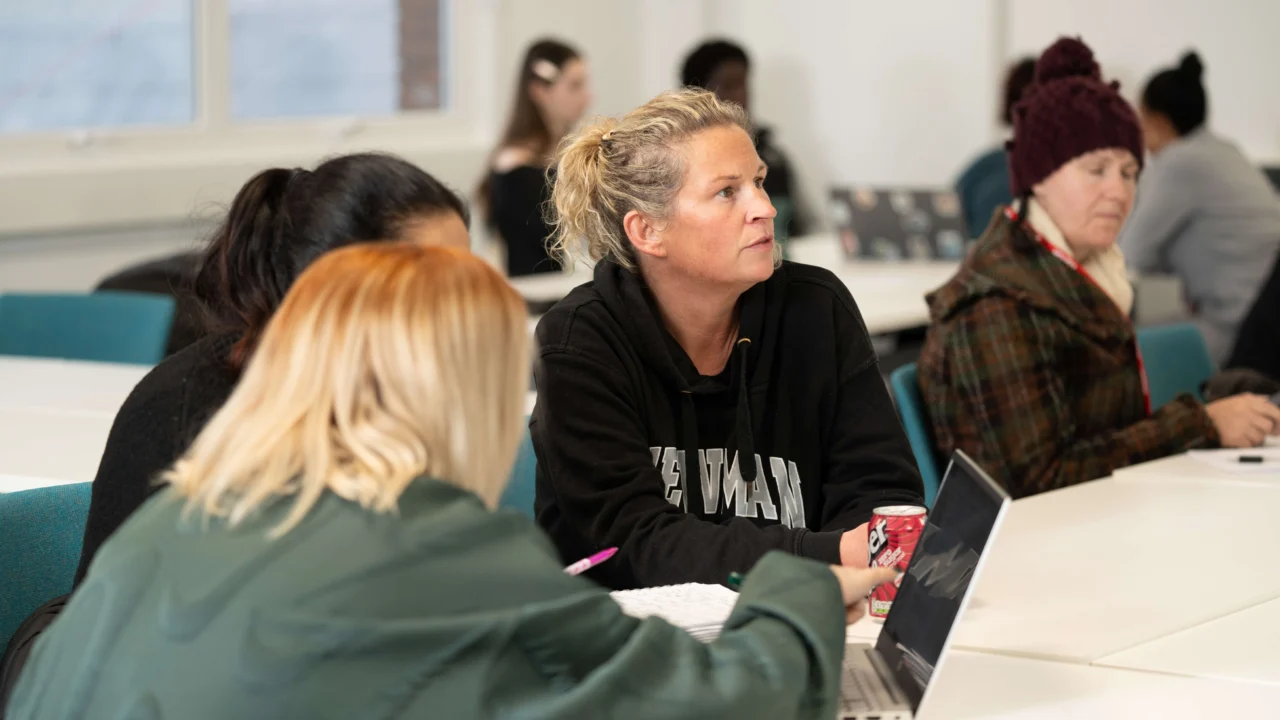
Interested in a different start date?
There are many challenges facing children and their families today. Supporting children, young people and families requires informed, dedicated and educated professionals who are able to understand the social, economic, political and cultural context in which we work, so that we can respond appropriately to these challenges.
Grounded in social justice, this course prepares our students for roles as senior practitioners and policy makers by offering them the opportunity to develop a critical understanding of the issues impacting upon families at a local, national and international level. We do this by drawing from professional expertise, social theory and the wealth of experiences brought to us by our students.
Book a free consultation
Want to find out more about your options? Book a free consultation with an Academic.
Why study this course
The course provides an opportunity to cover a range of multi-disciplinary issues relating to the lives of children, young people and their families.
The course is up to date, keeping pace with changes in society.
You will have opportunities to volunteer or undertake project work with local community organisations and apply the theoretical knowledge gained on the course to real-life scenarios under the supervision of experienced practitioners.
You will develop transferable skills which will be relevant to a wide range of graduate employment contexts.
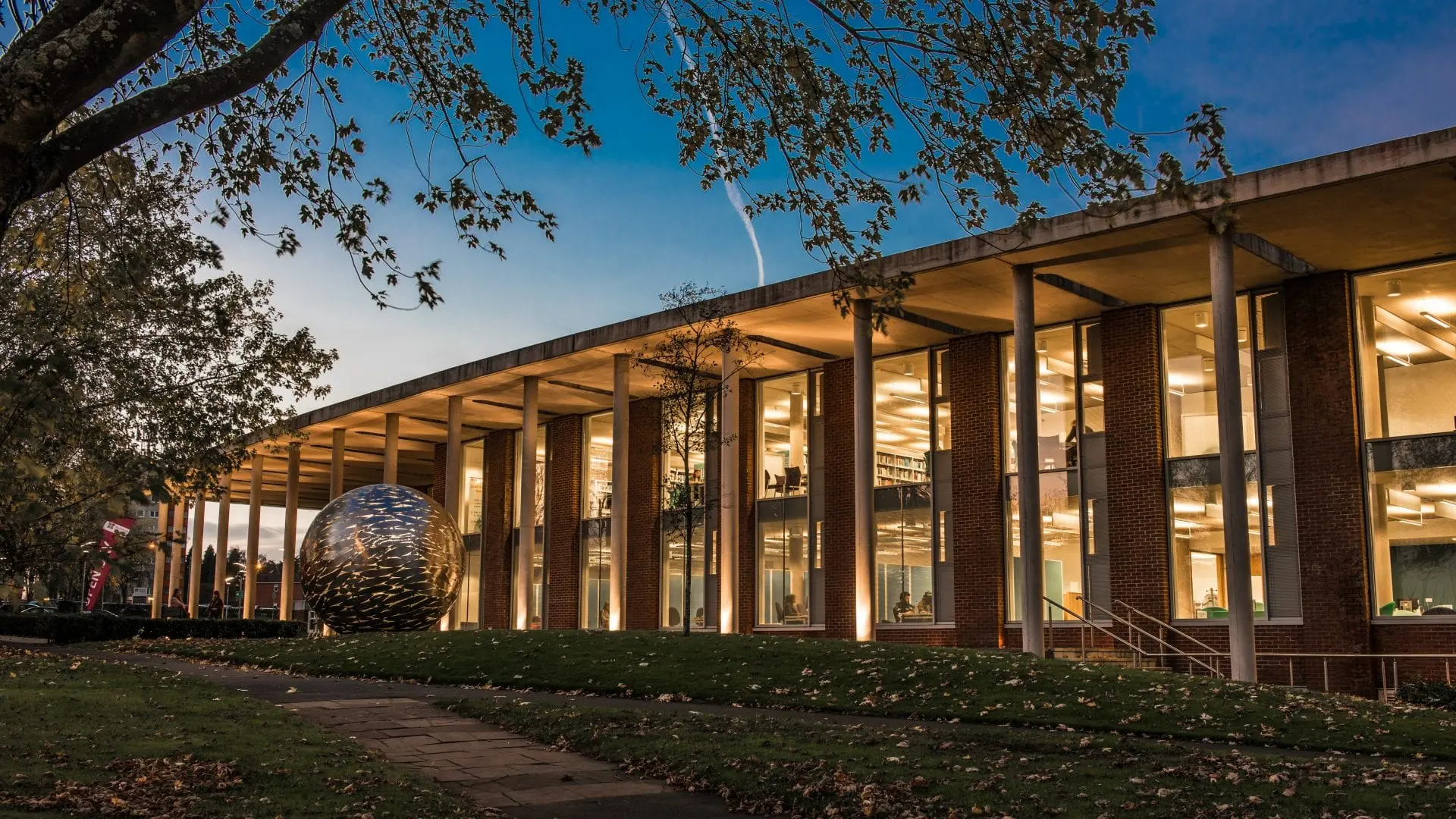
Got a question you’d like to ask?
Entry requirements
We welcome students from all backgrounds and accept a wide range of qualifications. If yours aren’t listed, don’t worry – our Admissions Team can help you explore your options. See full entry requirements.
• A-Level: Grade profile of BBC or 112 UCAS Tariff Points.
• BTEC: Grade profile of DMM. This can be achieved from either an Extended National Diploma or a combination of smaller BTEC qualifications.
• T-levels: A T-level with an overall Merit grade.
If English is not your first language, you must have the following IELTS score:
· Foundation courses: A Secure English Language Test equivalent to IELTS 5.5 IELTS with a minimum of 5.5 in each component.
· Undergraduate courses: A Secure English Language Test equivalent to IELTS 6.0 with a minimum of 5.5 in each component.
Other English language qualifications are also accepted. Please contact admissions for further information.
Please contact Admissions if you have any questions.
Course fees
The tuition fee for academic year 2026/27 is: £9,790. Tuition fees for courses starting April to May 2026, fall within the 2025/26 academic cycle.
Fees for the 2025/26 academic year can be found on our Student Finance pages.
Additional costs
The University will review tuition fees and increase fees in line with any inflationary uplift as determined by the UK Government, if permitted by law or government policy, in subsequent years of your course. It is anticipated that such increases would be linked to RPI (the Retail Price Index excluding mortgage interest payments).
Check out our blog/news/events
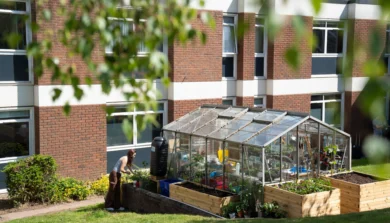
Birmingham Newman Celebrates Green Week 2026 with Campus‑Wide Events
Birmingham Newman will host its annual Green Week from 23 to 27 February 2026, bringing…
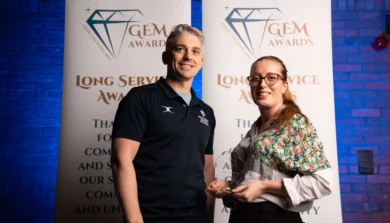
Research that makes a difference: Mark Holland wins Most Impactful Project Award
In December, we held our Staff Awards, where we recognised the outstanding achievements of colleagues…
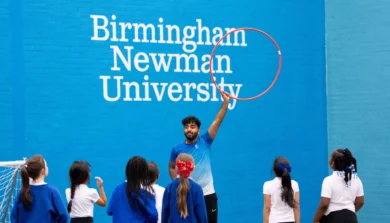
Sports Coaching students Deliver Coaching Sessions for Local Primary Pupils
Birmingham Newman University recently welcomed pupils from St Peter’s Primary School to campus as part…

Vice-Chancellor Professor Jackie Dunne awarded MBE in New Year Honours
Vice-Chancellor of Birmingham Newman University receives an MBE for services to Higher Education.
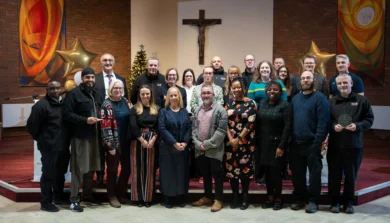
Birmingham Newman University Celebrates Staff Achievements at Annual Awards
Birmingham Newman University celebrates its staff at the Annual Staff Awards Celebration.

Book an open day
Find out about our next open day. Book now to secure your place.
Placement information
Our Careers team provides tailored advice, placements and workshops to help you build confidence and prepare for life after university.?
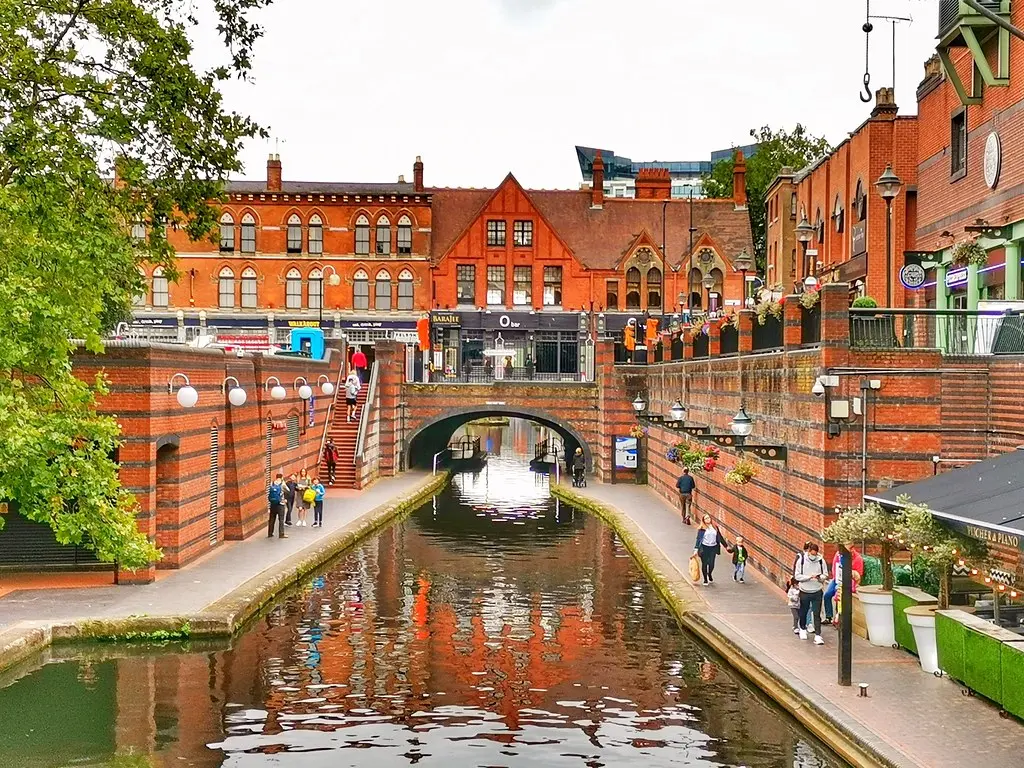
What Careers Can I Consider
The skills and knowledge gained from undertaking this course provide an excellent preparation for a wide range of occupations including careers in pastoral roles in education, family support work, social care, community support roles, employment within local authorities, health or charity sectors, culture, heritage or recreation.
It is intended that graduates from this course will develop into managers and leadership roles capable of dealing with multi-agency working with a range of knowledge and inter-personal skills.
Graduates can also progress onto a wide range of postgraduate degree programmes including social work, or teacher training or Psychology conversion.
Courses we think you'll also like

BA Counselling Studies and Working with Children, Young People and Families
- Start date:
- September 2026
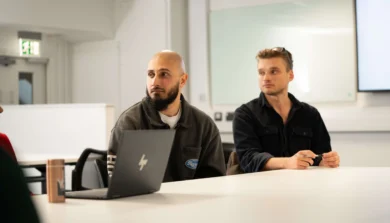
BA Counselling Studies and Working with Children, Young People and Families (part-time)
- Start date:
- September 2026
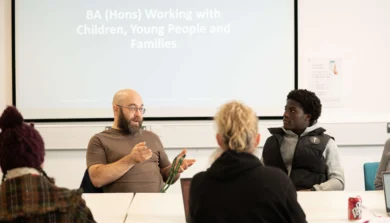
BA Single Honours Working with Children, Young People & Families (Top-Up)
- Start date:
- September 2026
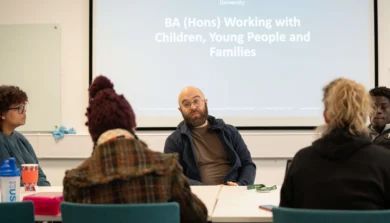
BA Single Honours Working with Children, Young People and Families (with Foundation Year)
- Start date:
- Various
